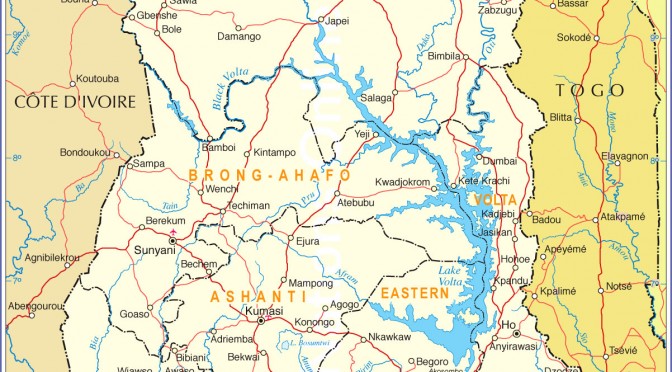The Volta River Authority (VRA) plans to construct a 150-Megawatt wind power plant to supplement power generation in Ghana.
The project, the first of its kind, is part of the VRA’s Renewable Development Programme and will be completed in two phases.
The first phase, which would generate 75 MW would be located in Anloga, Anyanui and Srogbe communities in the Keta Municipality in the Volta Region, while the remaining 75 MW would be located at Wokumaglje and Goi communities in the Ada West District in the Greater Accra Region.
In its July scoping report, the VRA said that the project was to help Ghana use more renewable energy sources. Currently, all grid-supplied electricity is generated using a mix of hydro and imported fossil fuel.
Only 0.1% of energy is generated from renewable sources, specifically solar power, the VRA noted in the report.
The wind project is a reflection of the RE law passed in November 2011 (Act 832) to provide the necessary legal and regulatory framework to promote the provision of energy, including electricity from renewable sources.
Ghana Youth Environmental Movement (GYEM) founder Gideon Commey said he and other campaigners and supporters of renewable energy took to social media minutes after the media announcement to celebrate “the impending and inevitable victory of clean energy over dirty energy”.
Commey and other environmental activists have been vocally opposed to VRA plans to build a coal power plant in the Central Region which will be run off coal imports from South Africa.
The VRA and the Shenzhen Energy Group (SEG) of China plan to build 2 x 350 MW Coal-fired power plant in Ghana The project is to be built at Aboano in the Ekumfi District of the Central Region. It is expected to be completed and operational by 2020.
Commey told Pulse Ghana that while the group would still campaign against coal, it was great to see the VRA emphasize renewable energy.
In its July scoping report, the VRA said that the project was to help Ghana use more renewable energy sources. Currently, all grid-supplied electricity is generated using a mix of hydro and imported fossil fuel.
Only 0.1% of energy is generated from renewable sources, specifically solar power, the VRA noted in the report.
The wind project is a reflection of the RE law passed in November 2011 (Act 832) to provide the necessary legal and regulatory framework to promote the provision of energy, including electricity from renewable sources.
Ghana Youth Environmental Movement (GYEM) founder Gideon Commey said he and other campaigners and supporters of renewable energy took to social media minutes after the media announcement to celebrate “the impending and inevitable victory of clean energy over dirty energy”.
Commey and other environmental activists have been vocally opposed to VRA plans to build a coal power plant in the Central Region which will be run off coal imports from South Africa.
The VRA and the Shenzhen Energy Group (SEG) of China plan to build 2 x 350 MW Coal-fired power plant in Ghana The project is to be built at Aboano in the Ekumfi District of the Central Region. It is expected to be completed and operational by 2020.
Commey told Pulse Ghana that while the group would still campaign against coal, it was great to see the VRA emphasize renewable energy.
The activist said it was clear the cost of renewable energy is tumbling at an unprecedented pace globally, so that “makes the mantra that fossil fuels are cheaper pretty under-whelming and factually fraudulent.”
A 2016 report by Bloomberg found that while two years of crashing prices for oil, natural gas, and coal triggered dramatic downsizing in those industries, renewables have been thriving.
Clean energy investment broke new records in 2015 and is now seeing twice as much global funding as fossil fuels, Bloomberg reports.
It states one reason for this is renewable energy is becoming ever cheaper to produce.
Referring to this report, Commey said “this is a fact not open for argument and one will wonder why it took the Government of Ghana that long to notice it.
“But this is why the VRA deserves applause. They have recognized that politics is about policy and policy is about the search of alternatives— outcomes that are better than others. Wind and solar will keep expanding at record rates and we have to plug ourselves into the opportunities they offer to transition into a low carbon economy and towards climate resilience as outlined by our National Climate Change Policy (NCCP). “



